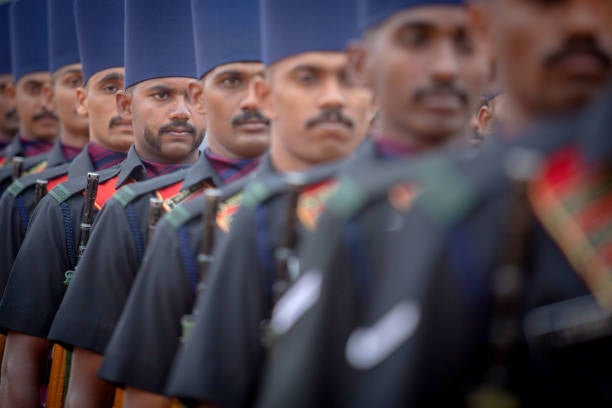India says ‘order and discipline’ of armed forces would break down without tough rules on adultery
Apex court in 2018 declared anti-adultery law unconstitutional

Your support helps us to tell the story
From reproductive rights to climate change to Big Tech, The Independent is on the ground when the story is developing. Whether it's investigating the financials of Elon Musk's pro-Trump PAC or producing our latest documentary, 'The A Word', which shines a light on the American women fighting for reproductive rights, we know how important it is to parse out the facts from the messaging.
At such a critical moment in US history, we need reporters on the ground. Your donation allows us to keep sending journalists to speak to both sides of the story.
The Independent is trusted by Americans across the entire political spectrum. And unlike many other quality news outlets, we choose not to lock Americans out of our reporting and analysis with paywalls. We believe quality journalism should be available to everyone, paid for by those who can afford it.
Your support makes all the difference.Armed forces of India would be at liberty to proceed with disciplinary action against officials committing adultery, said the country’s Supreme Court as it pegged the ramifications of “complete loose morals” on the rest of the country.
The apex court in 2018 struck down the 158-year-old law under which a man could be prosecuted if he had sex with a married woman without the permission of her husband.
However, two years later the defence ministry of the country approached the top court seeking clarification on the bearing it would have on similar regulations in the armed forces where an adulterous relationship was construed as “unbecoming” of an officer and punishable under “good order and discipline”.
Reviewing the impact of its judgement on court martial proceedings, the apex court clarified that disciplinary action can be initiated against military personnel serving armed forces, if found involved in adulterous conduct.
"If you are going to have an army with completely loose morals, then what will happen to the discipline? Military discipline will be affected,” said a five-judge constitutional bench as it clarified that the earlier judgement did not concern the Armed Forces Act.
The bench comprising justices KM Joseph, Ajay Rastogi, Aniruddha Bose, Hrishikesh Roy and CT Ravikumar outlined that an official’s conduct will have ramifications for the entire country, as it contrasted their actions against that of a civilian.
“You are a member of a disciplined force with huge ramifications on the rest of the country. You are supposed to guard the country. If you are busy doing something else, then the waves that you send down the ranks... can we say it’s okay?” the bench asked.
“You can merrily go around having an adulterous relationship? The cohesion of the unit, oneness that we talk about, what happens to all of that?”
While a private person’s adulterous relationship may not have an impact outside personal life, “an officer of the armed forces is not similarly circumstanced”, the court said. “What he does and what he does not do will have (an) impact not only on his entire unit but on the entire country itself.”
The court also ventured into its 2018 judgement, saying that while it declared the anti-adultery law to be unconstitutional, it did not “approve of adultery” and found that to be a “moral wrong”.
“This court also held that it will continue as a ground of dissolution of marriage and has also been described as a civil wrong in the judgement,” the bench said.
Under the now-scrapped anti-adultery law, a man could be imprisoned for up to five years if found guilty of having sex with a woman without the consent of her husband. He would be exempted from prosecution if done with the spouse’s consent. The law did not consider the woman an adulterous or an abettor.
While scraping the law in 2018, the court held that it was discriminatory, against the dignity of women, and treated them as “chattel of husband” as it called the provisions “archaic”.
However, appearing before the court on behalf of the defence ministry, additional solicitor general Madhvi Divan apprised the bench that the Armed Forces Tribunal quashed certain disciplinary action against the personnel for inappropriate sexual conduct by citing the 2018 judgement.
Not prosecuting officials for adultery could lead to “instability” in the forces, she submitted, adding that while the now antiquated law is premised on patriarchal connotation, in the army the disciplinary actions are gender neutral and female officers are also liable under them.
Join our commenting forum
Join thought-provoking conversations, follow other Independent readers and see their replies
Comments